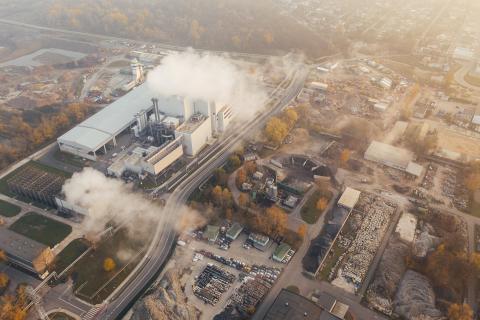Experiencing successive climate-related disasters is associated with greater mental health deterioration
Suffering climate change-related disasters is associated with a cumulative deterioration in mental health, meaning that the effects are exacerbated by successive events, according to an Australian study. The research, published in The Lancet Public Health, is based on longitudinal data from 2009 to 2019 on 5,000 people who suffered damage to their homes after at least one disaster (flood, wildfire, or cyclone).

Paul Valent - clima salud mental Aus
Paul Valent
Retired President of the Australasian Society for Traumatic Stress Studies and retired Monash Medical Centre Senior Consultant
Li and Leppold claim that for the first time they have demonstrated statistically that accumulation of two or three natural disasters, especially among the vulnerable, led to more frequent PTSD, anxiety and depression than their occurrence in individual or no disasters. With climate change producing more natural disasters, the authors warn that the mental health of the population will worsen. Their logic, backed by a wealth of statistics seems to be unassailable.
On the other hand, the study is limited to a small handful of measurable symptoms that are claimed to represent mental health.
That assumption is questionable. The symptoms do not include a vast array of other psychological symptoms such as grief, anger, guilt, shame, and injustice. They certainly say nothing about psychosomatic consequences of disasters such as heart attacks, strokes, and a great variety of physical symptoms; and they do not represent social symptoms of disasters such as car accidents, divorces, and delinquency.
Driving down consciously, verbally and mathematically into a few symptoms and extrapolating the world according to them is typical of left brain functioning. But in disasters the right brain, with its vast array of biopsychosocial symptoms, is dominant.
The left brain measure of the frequency of certain symptoms in recurrent disasters is valid and can be useful.
But ignoring the whole tapestry of human turmoil when the world rips apart has had, and could have in climate change future, dire consequences.
Maria Kangas - clima salud mental Aus
Maria Kangas
Head of the School of Psychological Sciences at Macquarie University, executive member of the Smart Green Cities Research Centre and member of the Lifespan Health and Wellbeing Research Centre
The study by Li and Leppold evaluated the cumulative mental health effects of successive exposure to natural disasters referenced as climate disasters using a national representative longitudinal dataset (the HILDA), between 2009 and 2019. The targeted sample (N=1511) was selected based on participants having experienced a damaged or destroyed home due to a weather-related disaster (e.g., bushfire, floods, cyclone). A socio-demographically matched comparison sample (N=3880) was included. Unfortunately, the targeted exposure sample was small in terms of the proportion of identified participants who reported experiencing two or more cumulative natural disasters.
The key findings from this study indicate that mental health (comprising anxiety and depressive symptoms) declined for individuals exposed to two or more successive disasters. Repeated exposures to these disasters hindered or delayed recovery. These findings align with other studies indicating that cumulative disasters including life stressors can deplete people’s resilience-building capacities when faced with successive adversity, particularly when occurring in temporal proximity and includes loss of resources.
Some key risk factors identified have important implications in terms of helping at-risk communities prepare and adapt to climate-related events. A notable finding was that individuals with chronic health conditions, impairments and disabilities, poor social support and those residing in rental homes reported a decline in mental health even after exposure to an initial disaster. This outcome further attests that exposure to significant cumulative life stressors, whether consecutive natural disasters or in combination with pre-existing health impairments and/or socio-economic hardship, can wear down people’s coping resources and attests to the need to strengthen psychological first aid and ongoing support to these more vulnerable individuals and communities.
However, understanding the ongoing holistic needs for these communities is vital. Co-designing future support services with these communities is integral to ensure that resources will be appropriate and beneficial to at-risk individuals and communities.
Although females, younger age adults and those residing in rural communities were more susceptible to reporting a decline in mental health symptoms following repeated disasters, the small sample size means that these findings need to be interpreted with caution, particularly as that findings were also further limited by the lack of information pertaining to the types and severity of natural events experienced.
The financial impact of these disasters (including loss of livelihood and displacement) was also not included in the current study. Hence, these latter findings attest to the need for future research which more comprehensively measures the full impact of weather-related events in combination with ongoing life stressors, as climate-related events do not occur in a vacuum.
Ang Li & Claire Leppold
- Research article
- Peer reviewed
- Observational study
- People



